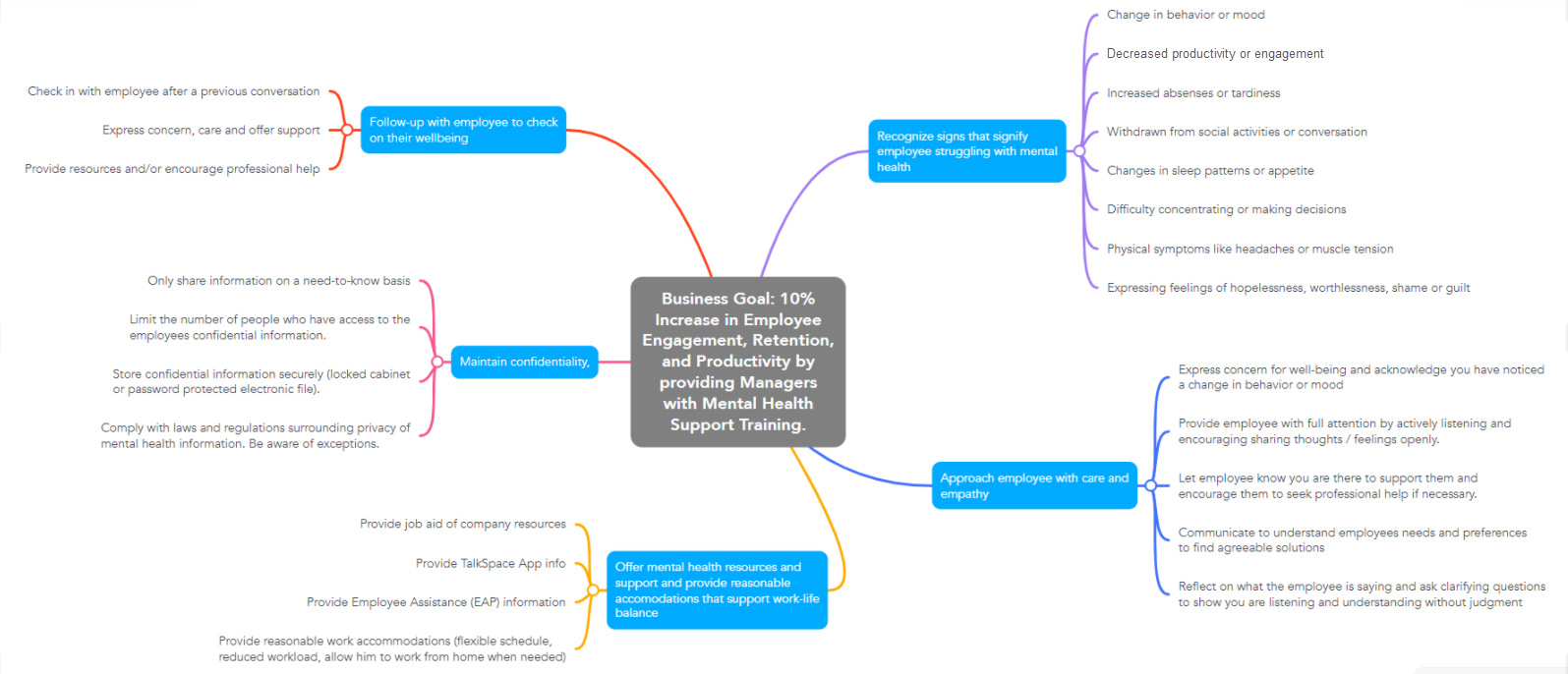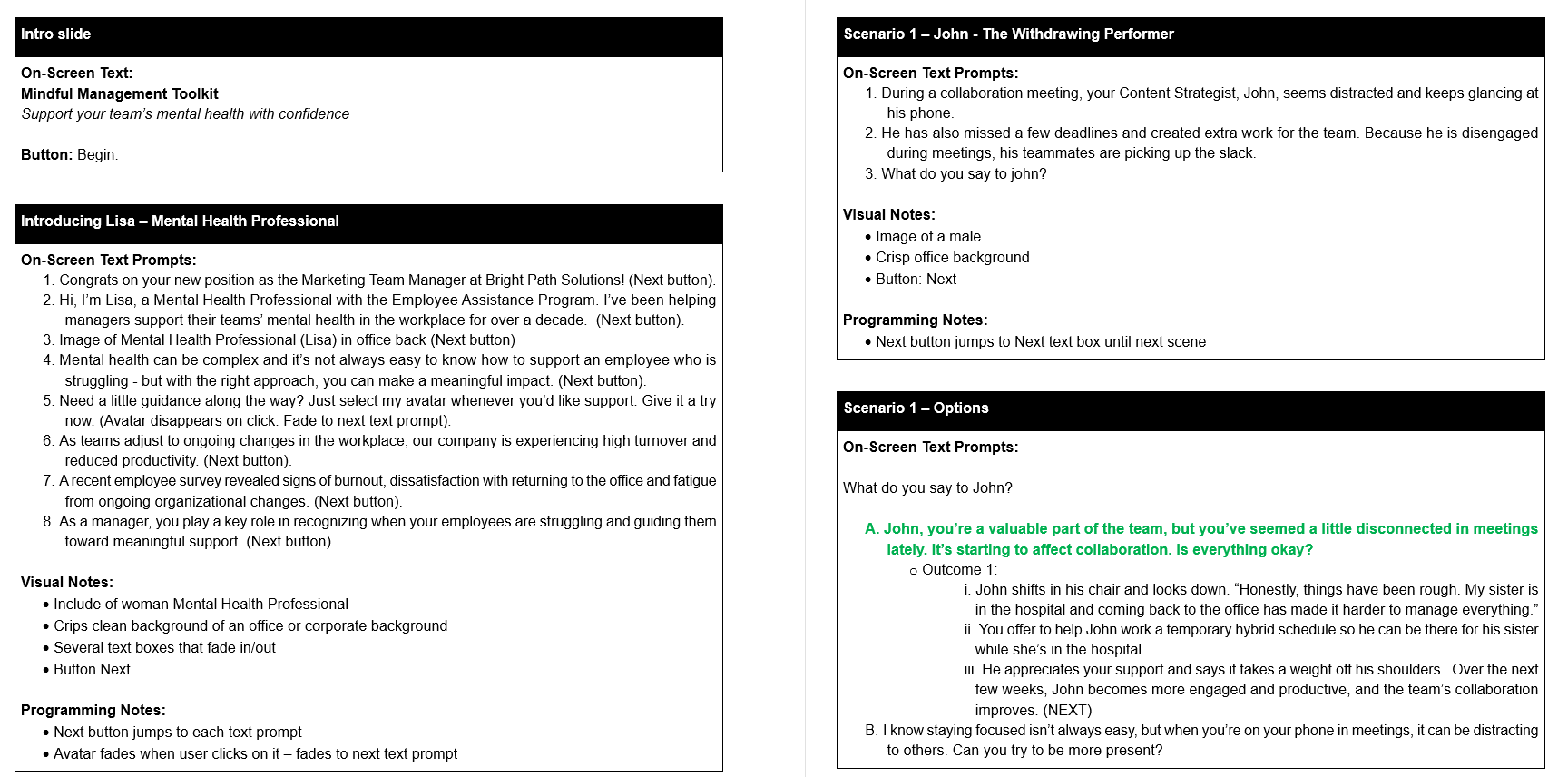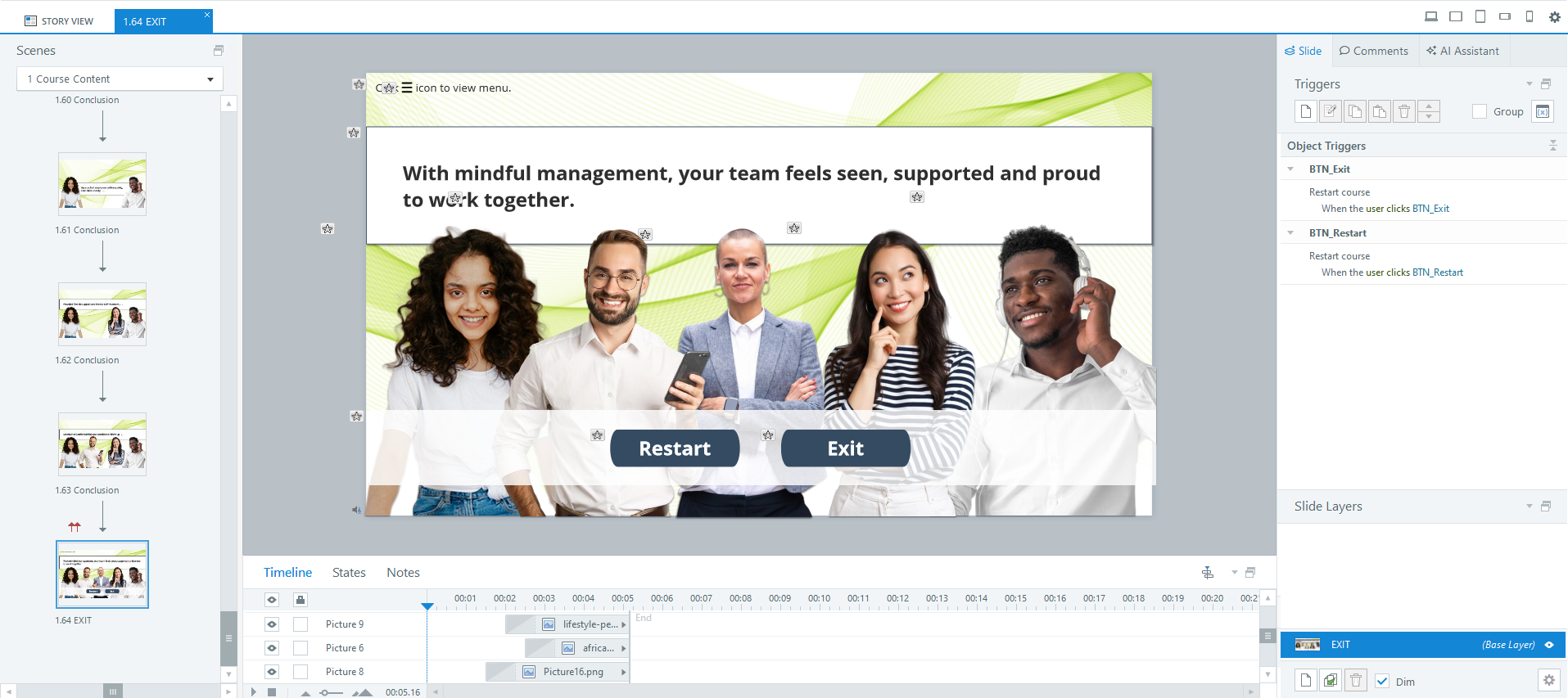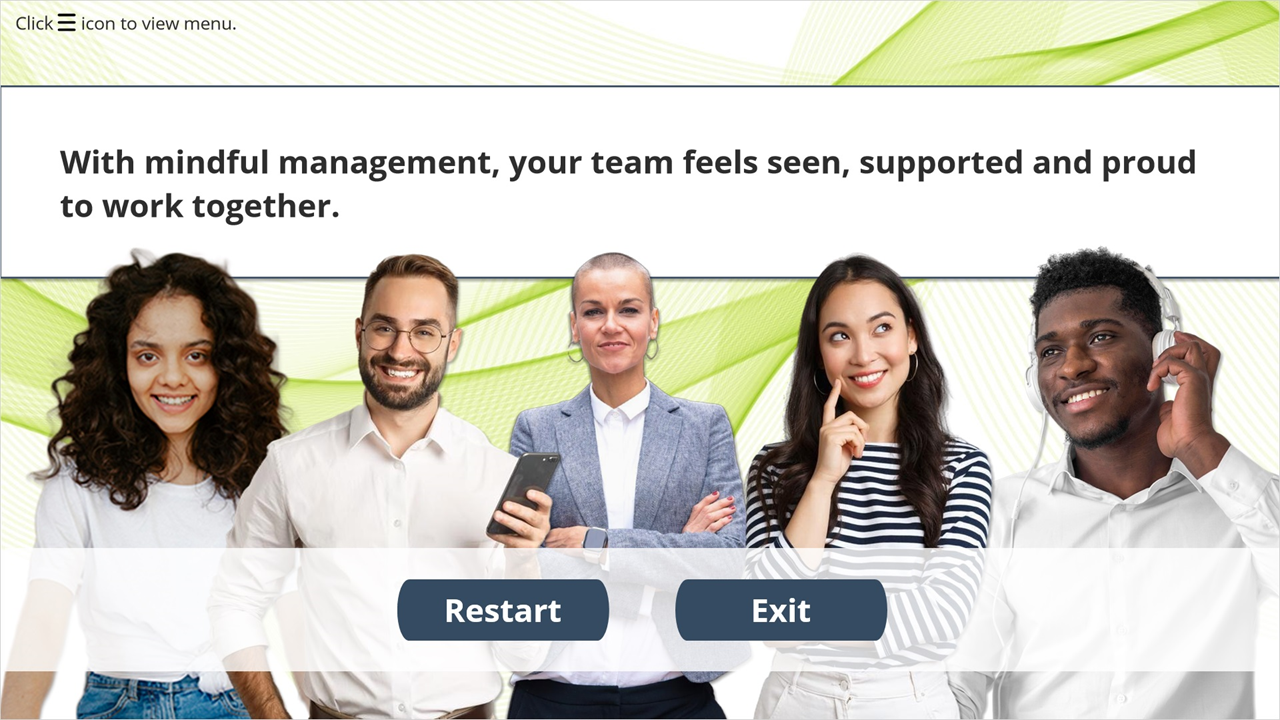Mindful Management Toolkit
Feature Project: I designed this flagship scenario-based eLearning module to equip managers and leaders with skills to recognize and effectively support mental-health concerns with confidence and care. Built in Storyline 360 with custom multimedia and behavior-change design.
Audience: Managers
Responsibilities: Instructional design, action mapping, storyboarding, scripting, visual and graphic design
Tools Used: Adobe Photoshop, Articulate Storyline 360, Microsoft PowerPoint, Mindmeister
The Problem
In the years following the COVID-19 pandemic, many employees have struggled to re-adjust to in-person and hybrid work environments. A recent employee survey revealed high rates of burnout, change fatigue, and dissatisfaction with workplace support - contributing to decreased productivity and high turnover. Managers often feel unprepared to recognize mental health struggles or respond with appropriate care, leading to missed opportunities for support, trust and retention.
The Solution
After identifying gaps in how managers recognize and respond to mental health concerns in the workplace, I created a scenario-based eLearning course to equip managers with the tools to respond confidently and compassionately. The experience guides learners through realistic situations where they practice recognizing early signs of mental health struggles, approaching employees with empathy and care, maintaining confidentiality, and offering appropriate resources and accommodations like the Employee Assistance Program (EAP) and flexible scheduling. By normalizing mental health conversations and reducing stigma, this course empowers managers to create a psychologically safe and supportive culture - ultimately improving retention, morale and over team well-being. To support a well-rounded communication strategy, I developed a separate version focused on team members.
My Process
I used the ADDIE framework to design and build this scenario-based Learning experience. I began with an action map to identify key learner behaviors, then moved into scripting the storyboard content, visual mockups and building the prototype in Articulate Storyline 360.
Action Map
I served as the subject matter expert, combining living insight and professional research to ensure the course reflected both practical and compassionate approaches to mental health in the workplace. The action map includes recognizing early signs of struggle, responding with empathy, reducing stigma, maintaining confidentiality, offering resources and following up - all grounded in workplace realities and leadership best practices.
Text-based Storyboard
After mapping out key actions and outcomes, I developed a text-based storyboard that brings each scenario to life with realistic dialogue and meaningful choices. I created a cast of relatable characters, including a supportive mentor to guide the learner throughout the experience. Every scene was thoughtfully scripted to align with mental health best practices, and I outlined all screen text, interaction logic and visual direction to support the build in Articulate Storyline.
Visual Mockups
To bring the story to life visually, I designed a cohesive mood board and style guide with calming blues, greens and neutrals - punctuated with lime green for emphasis.
I sourced professional, diverse character images and clean office backgrounds from Freepik.com, choosing visuals that matched both tone and theme. I created visual mockups in PowerPoint, layering translucent shapes and text with thoughtful spacing and layout. These designs were later animated and imported into Storyline for a dynamic learner experience.
Interactive Prototype
Once my mock-ups were finalized, I developed an interactive prototype in Articulate Storyline 360 to test the visual design, functionality and learner experience. I programmed the full first scenario with interactive branching, hover states and character dialogue to stimulate the flow of the course. This prototype was reviewed and approved with feedback that refined the visual consistency and functionality prior to building the full experience.
Full Development
After incorporating feedback from the prototype, I built out the full learning experience in Articulate Storyline 360. I prioritized an intuitive, emotionally supportive user experience by programming layered animations, hover states and dialogue-driven branching. Each scenario was carefully designed to reflect real-world workplace situations, with outcomes that adapt based on learner choices. I used variables and conditions to guide the learner journey and created distinct visual layers, highlighting mentor guidance scenes, to help reinforce key takeaways. For a few moments of delight, I added three different sound clips to the various feedback slides and the last slide. The last scene brings together all the characters to highlight the key takeaways that make mindful management when supporting employees’ mental health successful.
Results & Takeaways
This project explores how mindful leadership isn’t just about having all the answers - but about being present, observant and human. By combining realistic scenarios with practical tools, I created a space where managers could reflect, respond with empathy, and become equipped to build a stronger connection with their teams.
Although this is a concept project, its design aligns with the business goal outlined in the action map: an estimated 10% increase in employee engagement, retention, and productivity when managers are equipped with mental-health-supportive leadership skills. These projections are based on outcomes typically associated with effective mental health training in the workplace.
Projected Results:
Better recognition of early signs of employee distress
Increased confidence in leading empathetic, supportive conversations
More consistent offering of EAP resources and reasonable accommodations
Stronger trust through confidentiality and intentional follow-up
Projected improvement in engagement, retention, and productivity by approximately 10%
Key Takeaways:
Empathy is a skill that grows with practice - realistic scenarios make it accessible
Small, consistent actions (like checking in) can shift team culture in meaningful ways
Calm, inclusive design fosters psychological safety in learning
Focused, interactive modules support engagement and reduce cognitive load









